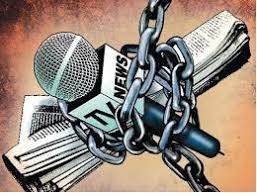
Somalia’s media landscape is facing a troubling trend of journalist arrests and intimidation. The recent detention of AliNur Salaad for reporting on drug use in the military highlights the government’s increasing intolerance of critical journalism.
This incident is part of a broader pattern. Journalists like Mohamed Salah and Said Abdullahi Kulmiye have faced charges or arrests for reporting on sensitive topics such as aid organization suspensions and checkpoint bribery. Others, like Abdulkadir Isse, have been silenced for exposing alleged corruption.
The Somali Journalists Syndicate (SJS) has been at the forefront of defending press freedoms, but not without cost. Its secretary general spent two months in prison, and the organization’s bank accounts were frozen in a move seen as government retaliation.
Human rights organizations warn that these actions create a chilling effect on independent journalism. The use of criminal law to intimidate reporters, a tactic observed during President Hassan Sheikh Mohamud’s previous term, appears to be resurfacing.
This crackdown not only threatens individual journalists but also undermines the public’s right to information on matters of national importance. As Somalia grapples with complex challenges, a free and vibrant press is crucial for fostering transparency and accountability in governance. The ongoing struggle for press freedom reflects broader tensions in the country’s path to stability and democracy.
